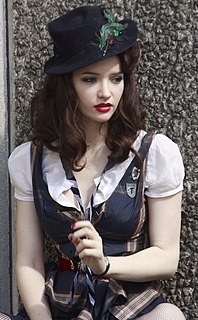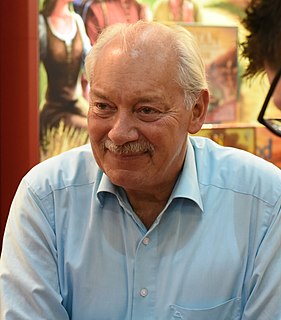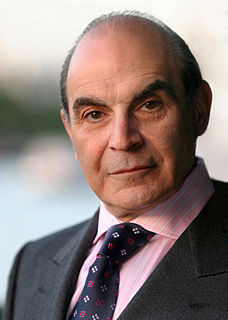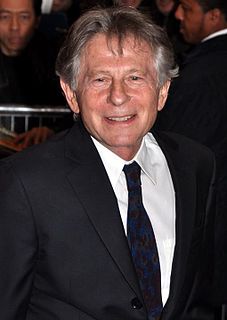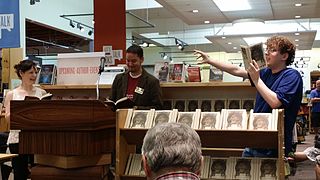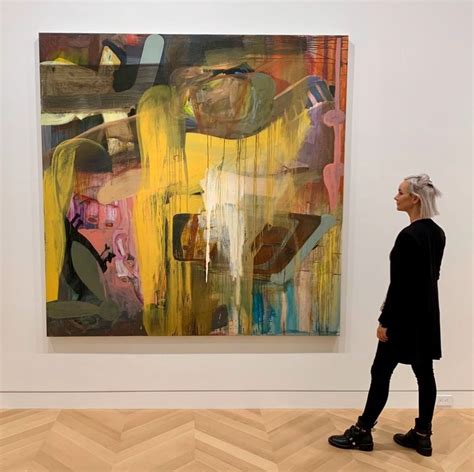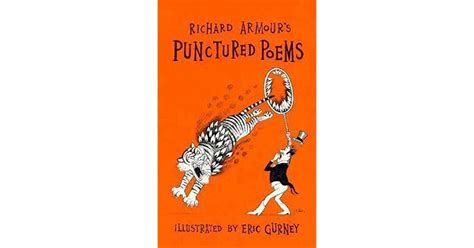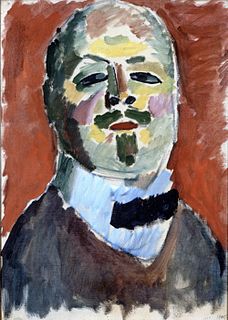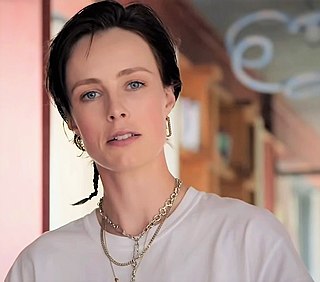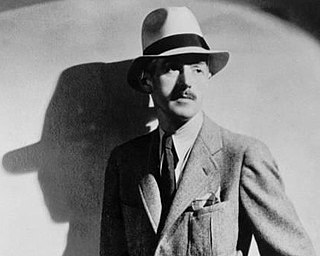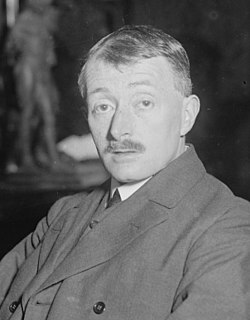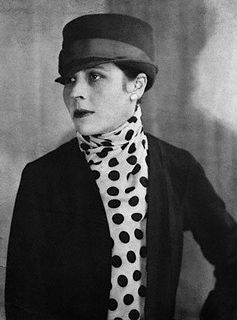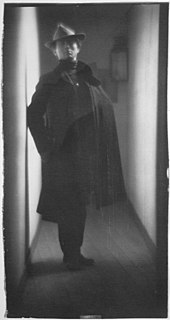Top 188 Macbeth Motif Quotes & Sayings - Page 3
Explore popular Macbeth Motif quotes.
Last updated on April 14, 2025.
I was at a school in England, a prep school, from the ages of 8 and 13. And every play they did was a musical. Parents love musicals. And I don't sing. It was driving me crazy. 'We're doing 'Macbeth.' 'Yes!' 'The musical!' And I was always in the chorus, because of course, in all the main parts, you had to be able to sing.
I'm really sensitive to the beginning of a motif or a phrase or something that's kind of the backbone or becomes kind of the spine that you grow muscle tissue onto. You know from that, if you have that good beginning, it's like everything that grows off it often has potential. Maybe I'm good at that early bit of recognition of pieces of potential. I'm not sure.
When a sculptor creates a sculpture, a writer writes a novel, or a painter paints a motif on a canvas, he needs talent and expertise. But to be successful in his endeavor, he also needs to have the passionate feeling that he wants, at all costs, to create a work of art which, in his head, constantly demands to be accomplished. The same also applies to developing board games or card games.
On a motif such as was indicated by Reti one cannot build the plan of a whole well contested game; it is too meagre, too thin, too puny for such an end. Reti's explanations, wherever they are concerned with an analysis which covers a few moves, are correct and praiseworthy. But when he abandons the foundations of analysis in order to draw too bold, too general a conclusion, his arguments prove to be mistaken.
Second, if you disbelieve in the reality of good and evil spirit agents, you fundamentally change the narrative of Scripture. The motif of spiritual warfare is a through-line of both the Old and New Testaments (NT). And in the NT, the meaning of what Jesus was doing in his life, ministry, death and resurrection is fundamentally tied up with the belief in spiritual warfare. Take away Satan, and you take away one of the most fundamental reasons Jesus came to earth!
I think an awful lot of the reasons people put forward for not liking Hillary Clinton play into deep-seated, negative female stereotypes: ambition, secrecy, calculating. I mean, that is Lady Macbeth, a kind of cold woman. I don't think that's Hillary. And I don't think people would judge a man in the same way.
You love the accidental. A smile from a pretty girl in an interesting situation, a stolen glance, that is what you are hunting for, that is a motif for your aimless fantasy. You who always pride yourself on being an observateur must, in return, put up with becoming an object of observation. Ah, you are a strange fellow, one moment a child, the next an old man; one moment you are thinking most earnestly about the most important scholarly problems, how you will devote your life to them, and the next you are a lovesick fool. But you are a long way from marriage.
I first came across the script for 'Macbeth' between the ages of 11 and 12; it was the first book that shook my life. Because I did not yet understand that I could simply purchase it in a bookstore, I copied much of it by hand and took it home. My childhood imagination pushed me to feel like a co-author of the play.
Focus on guilt will always breed fear, and focus on innocence will always breed love. Any time we project guilt onto someone else, we are fortifying the experience of guilt within ourselves. Like blood on Lady MacBeth's hands, we cannot remove our own guilty feelings as long as we are judging others.
In Macbeth a lady is restrained from the murder of a king by his resemblance of her father as he slept. Should not all men be restrained from acts of violence and even of unkindness against their fellow men by observing in them something which resembles the Savior of the World? If nothing else certainly, a human figure?
Shakespeare, who never could think up a plot by himself, found this one [Macbeth] in Holinshed's Chronicles, changing it just enough so that no one would recognize the source. He didn't count on the resourcefulness of modern scholars, who have to discover things like this to become associate professors.
My art in the last period has all been in small format, but my paintings have become even deeper and more spiritual, speaking truly through colour. Feeling that because of my illness I would not be able to paint very much longer, I worked like a man obsessed on these little 'Meditations' (a long series of small paintings he made during the last years of his life, with as main motif the schema of a face, ed.). And now I leave these small but, to me, important works to the future and to people who love art.
And more than once in the course of time, the same theme reappears: among the mystics of the fifteenth century, it has become the motif of the soul as a skiff, abandoned on the infinite sea of desires, in the sterile field of cares and ignorance, among the mirages of knowledge, amid the unreason of the world - a craft at the mercy of the sea's great madness, unless it throws out a solid anchor, faith, or raises its spiritual sails so that the breath of God may bring it to port.
I was at a school in England, a prep school, from the ages of 8 and 13. And every play they did was a musical. Parents love musicals. And I don't sing. It was driving me crazy. 'We're doing 'Macbeth.'' 'Yes!' 'The musical!' And I was always in the chorus, because of course, in all the main parts, you had to be able to sing.
Shakespeare villains were extraordinary. Macbeth, Iago, Richard III... They're so richly layered that a British actor would find it almost impossible to create a two-dimensional villain, if he's explored in his early years or continues to explore his Shakespearean heritage. You can almost not judge them, if they're played really well.
Do I do as false prophets do and puff air into simulacra? Am I a Sorcerer--like Macbeth's witches--mixing truth and lies in incandescent shapes? Or am I a kind of very minor scribe of a prophetic Book--telling such truth as in me lies, with aid of such fiction as I acknowledge mine, as Prospero acknowledged Caliban.
Samuel Spade's jaw was long and bony, his chin a jutting v under the more flexible v of
his mouth. His nostrils curved back to make another, smaller, v. His yellow-grey eyes were
horizontal. The V motif was picked up again by thickish brows rising outward from twin creases
above a hooked nose, and his pale brown hair grew down--from high flat temples--in a point on
his forehead. He looked rather pleasantly like a blond Satan.
I am well aware that there is such a great craving in man for heroism and the heroic, and that hero worship forms not a small motif in his complex. I am also aware that, unless man believes in his own heroism and the heroism of others, he cannot achieve much or great things. We must, however, take proper care that we do not make a fetish of this cult of hero-worship, for then we will turn ourselves into votaries of false gods and prophets.
I try to structure albums in a pattern, like in a way where there's a motif that runs throughout or some kind of conceit that informs it in a general way. Maybe it's in a harmonic key. I like to go metastructural sometimes, like look at more than the three-minute passage and how that interacts with other pieces. And I've been increasingly interested in false starts and fraudulent beginnings, and things that don't reach their implied conclusions. I take an album and I kind of start moving things around like Jenga.
I grew up with it. As a young actor, I was always aware of the brilliant work of Shakespeare. We studied Romeo & Juliet and Macbeth in school. As a young actor, you're always mystified and intrigued by such brilliant work. To actually have the chance to be involved in this production was a wonderful thing for me.
My war brought me many things; let yours bring you as much. Life is not to be told, call it as loud as you like, it will not tell itself. No one will be much or little except in someone else's mind, so be careful of the minds you get into, and remember Lady Macbeth, who had her mind in her hand. We can't all be as safe as that.
At 13, in my first year of Tonbridge, I went up for the part of Macbeth. I was up against the 17- and 18-year-olds, but for some reason I got the part. It made me incredibly unpopular with my peers, but it was the English and drama teachers who stepped in to save me when others wanted me kicked out of the school.
What does Macbeth want? What does Shakespeare want? What does Othello want? What does James want? What does Arthur Miller want when he wrote? Those things you incorporate and create in the character, and then you step back and you create it. It always must begin with the point of truth within yourself.
Whenever I work on the computer, I have folders and you know how you always give everything working titles, if you have a riff or a motif or a chord progression or a lyric written on a page, it's just a line or a word or something so I always give everything a working title when I'm making a folder.
Some day there may be... machinery that needs but to be wound up and sent roaming o'er hill and dale, through fields and meadows, by babbling brooks and shady woods - in short, a machine that will discriminately select its subject and, by means of a skillful arrangement of springs and screws, compose its motif, expose the plate, develop, print, and even mount and frame the result of its excursion, so that there will be nothing for us to do but to send it to the Royal Photographic Society's exhibition and gratefully to receive the 'Royal Medal'.
I once said to someone when I was playing Lady Macbeth and they said: "That's tricky, emotionally, what do you do about murdering your husband's cousin?" And there are, of course, things that aren't in your personal repertoire that you have to somehow understand by reading or watching other things and listening to other people talk about them.


